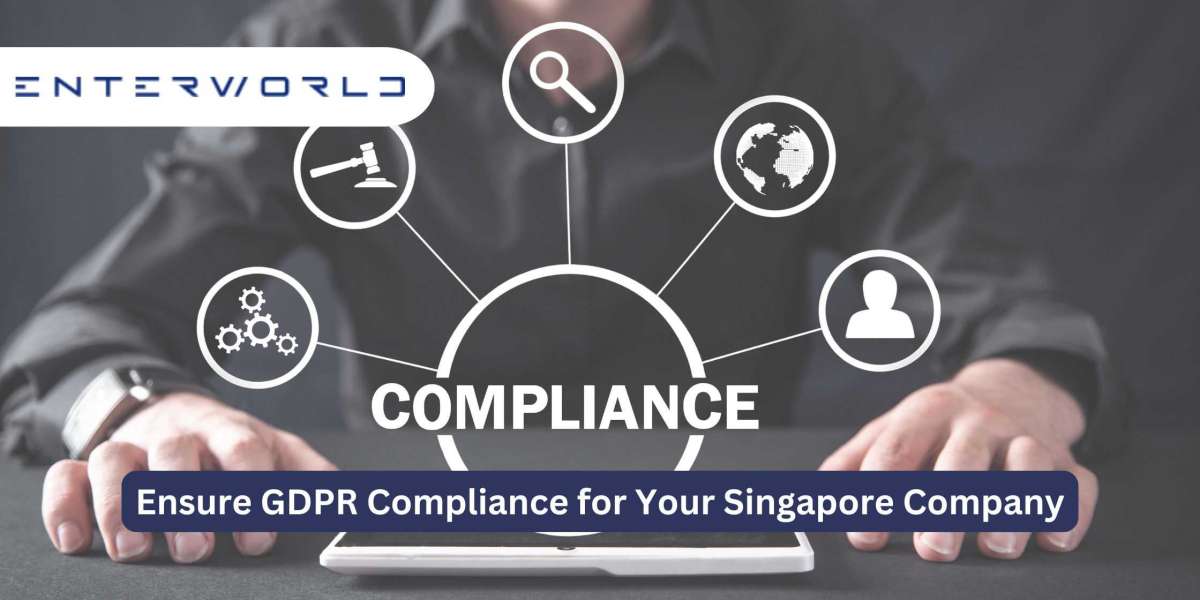As data protection regulations evolve worldwide, companies are increasingly required to comply with stringent standards, including the General Data Protection Regulation (GDPR). While GDPR is an EU regulation, its reach extends far beyond Europe, affecting businesses globally, including companies based in Singapore. If you own or manage a Singapore-based company, ensuring GDPR compliance is crucial for protecting your customers' personal data and avoiding significant fines.
In this blog, we’ll discuss how GDPR affects your Singapore company and the key steps you should take to ensure compliance. From understanding GDPR principles to adjusting your data handling practices, here’s how you can secure your business and stay compliant.
1. What is GDPR and How Does it Apply to Your Singapore Company?
The General Data Protection Regulation (GDPR) is a regulation in the European Union (EU) designed to protect the personal data and privacy of EU citizens. While it primarily applies to businesses operating within the EU, it also affects companies outside of the EU if they offer goods or services to EU residents or process their data.
If your Singapore company handles the personal data of EU citizens—whether through an online store, services, or marketing efforts—you are subject to GDPR compliance, regardless of where your company is located. Therefore, even though your company is based in Singapore, GDPR may still have a direct impact on your operations.
2. Steps to Ensure GDPR Compliance for Your Singapore Company
To ensure that your Singapore company complies with GDPR, there are several steps you should take:
a. Understand the Data You Handle
The first step is to map out the types of personal data your company collects, processes, and stores. Personal data includes any information that can identify an individual, such as names, addresses, email addresses, and IP addresses. Understanding this data will help you determine whether GDPR applies to your company and what data protection measures you need to implement.
b. Appoint a Data Protection Officer (DPO)
Under GDPR, certain companies are required to appoint a Data Protection Officer (DPO). While not all companies need a DPO, if your Singapore company processes large amounts of personal data or engages in sensitive data processing, appointing a DPO can help ensure compliance. The DPO is responsible for overseeing data protection policies, training staff, and serving as a point of contact for data subjects and regulatory authorities.
c. Obtain Explicit Consent for Data Collection
GDPR emphasizes the importance of obtaining clear, explicit consent from individuals before collecting or processing their personal data. Your Singapore company must have a robust consent mechanism in place. Consent should be freely given, specific, informed, and unambiguous. Be sure to update your privacy policies and terms of service to clearly communicate how data will be used and ensure that customers can easily opt-in.
d. Implement Data Protection Policies and Procedures
One of the core principles of GDPR is the protection of personal data. Your company should implement appropriate data protection policies and procedures, such as data encryption, secure storage, and data minimization practices. These measures ensure that personal data is not kept for longer than necessary and is adequately protected against breaches or unauthorized access.
e. Train Employees on Data Protection
Since GDPR compliance is an ongoing responsibility, training your employees is essential. Employees should understand the importance of data protection and be aware of their responsibilities in handling personal data. Regular training sessions can ensure that your team remains up-to-date with the latest data protection practices.
3. Company Registration in Singapore and GDPR Compliance
When starting a business in Singapore, ensuring GDPR compliance should be part of your overall business strategy, especially if you plan to serve clients or customers in the EU. If you’re in the process of company incorporation in Singapore or Singapore company formation, it’s important to include data protection and privacy considerations from the outset.
Incorporating a company in Singapore typically involves choosing the right business structure, submitting required documentation, and registering your company with the Accounting and Corporate Regulatory Authority (ACRA). At this stage, it’s a good idea to incorporate data protection policies into your business framework, which can help you remain compliant with both local regulations and GDPR.
4. Handling Data Breaches and GDPR
Another important aspect of GDPR compliance is managing data breaches. GDPR mandates that companies report any data breaches to the relevant authorities within 72 hours of discovering them. As part of your Singapore company’s compliance framework, it’s essential to develop a plan for detecting, investigating, and responding to potential data breaches. This includes notifying affected individuals if there is a high risk to their rights and freedoms.
5. Regular Audits and Ongoing Compliance
GDPR compliance isn’t a one-time task—it requires continuous effort. Your Singapore company should regularly audit its data processing activities and update data protection measures to align with evolving regulations. By conducting regular reviews and audits, you can ensure that your data protection practices remain robust and compliant with GDPR over time.
Conclusion: Secure Your Singapore Company’s Data and Avoid Penalties
GDPR compliance may seem like a daunting challenge for Singapore companies, but it is achievable with the right steps and commitment. By understanding your company’s data practices, implementing necessary protections, and staying updated on regulatory changes, you can ensure that your Singapore company remains compliant with GDPR.
Whether you’re starting a new business with company registration in Singapore, or you’ve already gone through company incorporation in Singapore, integrating GDPR compliance into your operations is crucial for long-term success. Safeguarding personal data not only protects your customers but also preserves your company’s reputation and ensures you avoid costly fines and penalties.








